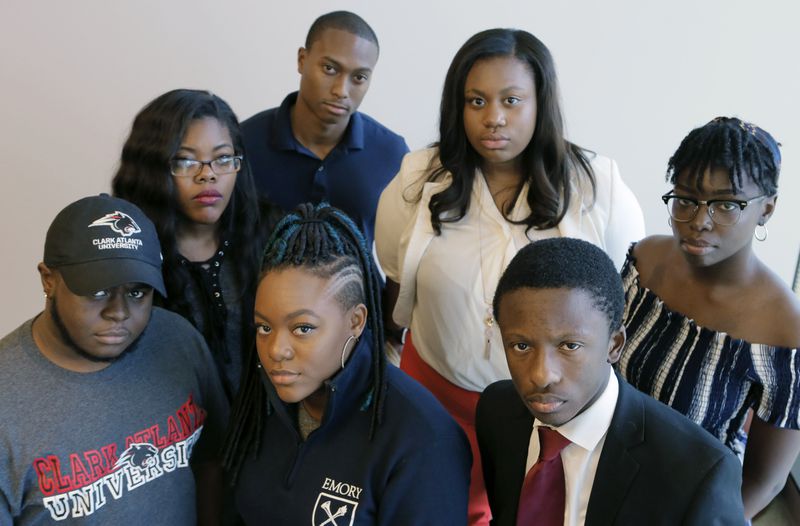When she was at Georgia State University, Meagan Mwanda often reminded her friends at HBCUs that she attended perhaps the blackest school in the nation.
No school in the country graduates more black students than GSU, and few eclipse GSU's black enrollment of more than 8,000. Then there are the large number of black administrators, advisers and faculty members.
» Atlanta black students respond to 'Dear White People'
» ‘Dear White People’: Of black privilege and being bougie
» Dear White People: 'I'm a nuclear engineer'
And even with all of that, Mwanda transferred from Georgia State to UGA - where only 7 percent of the student body is black - to focus on her major, linguistics.
"I did have that "HBCU" experience in a sense of community. A lot of the community was catered for black students," said Mwanda, 20. "A lot of black students thrived, because there was so much community and diversity."
That part was much different from the Netflix series, "Dear White People."
As part of the AJC's RE:Race project, the Atlanta Journal-Constitution brought in African-American students from several major colleges in the area to discuss the series and reflect on ther own experiences at school.
» MORE COVERAGE: How we experience race in Georgia
» Why do we need historically black colleges anyway?
Mwanda represented a unique duality, having attended two predominantly white colleges and having two unique experiences.
"All of the things that the students in 'Dear White People' experienced, I certainly experienced - once I got to UGA," Mwanda said. "As soon as I stepped on campus, I felt like a number. I felt very censored. I felt a lot of anxiety. Especially being the only black girl in all of my classes this semester."
For the record, HBCUs, or historically black colleges, are schools that were specifically founded before 1964 with the express purpose of educating black students.
Credit: Bob Andres
Credit: Bob Andres
Even black colleges that are now predominantly white, like West Virginia State and Bluefield State College, are still HBCUs, while other schools founded after 1964 with large black populations are not.
Atlanta is home to some of the nation's most prominent HBCUs, including Spelman College, Morehouse College and Clark Atlanta University.
Which is why there were aspects of "Dear White People" that Morehouse's Jared Sawyer Jr. said he couldn't relate to.
» THE MAYOR'S RACE: Is Atlanta ready to elect a white leader?
» FIRST PERSON: Your stories about Atlanta's racial lines
But the 19-year-old junior religion major's eyes were opened to the interactions and conflicts that black students have to deal with on white campuses.
"It was revelation. With all of the racial tension in the country, and the Southeast, it is a revelation where a lot of white people seem to look toward their black friends for answers in regards to racial tensions and to help heal this racial divide," Sawyer said. "Sometimes it is hard to have those conversations if you are not exposed to it."
About the Author







